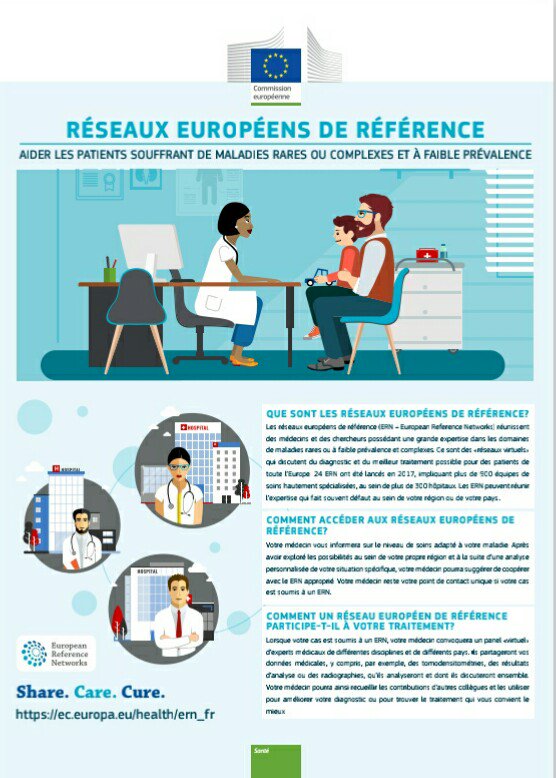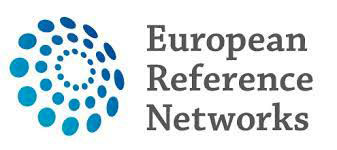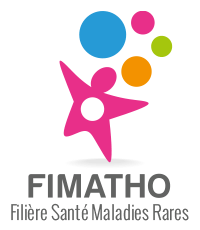Since 2000 and the adoption of EC regulation No. 141/2000 on orphan medicinal products, the European Union has been helping to make rare diseases a public health priority, which is essential in fully taking into account the needs of close to 30 million citizens in the EU.
The challenge for Europe is to build permanent tools or mechanisms in order to sustainably account for the specificities of rare diseases on the scientific, economic and organisational levels.
In Article 12, Directive 2011/24/EU on the application of patients' rights in cross-border healthcare sets up enhanced collaboration between member states and defines the objectives of future European Reference Networks.
EUROPEAN REFERENCE NETWORKS (ERN)
In December 2016, 24 European Reference Networks, including the ERNICA network (European Reference Network on Rare Inherited and Congenital Anomalies) covering the same diseases and disorders as those of the FIMATHO network, were officially approved by the European Commission.
The European Commission created a poster on the European Reference Networks (ERN), with the purpose of explaining their role and their involvement in treating rare diseases.

THE ERNICA NETWORK

ERNICA (European Reference Network on Rare Inherited and Congenital Anomalies) is a European reference network dedicated to congenital abdominal and thoracic diseases and disorders.
It brings together the expertise of several European countries and is coordinated by Prof. Wijnen (Erasmus Medisch Centrum - Rotterdam).
All reference centres in the FIMATHO network became part of it, following a call for projects launched in 2016. FIMATHO has provided its strategic and methodological support in putting together candidate files.
Several members of FIMATHO lead or participate in working groups:
- Prof. F. Gottrand, Prof. A Benachi, Dr. H. Lengliné, Prof. Francisca Joly, Dr. N. Panait and Prof. N. Peretti, coordinators of the six French HCPs (healthcare providers), are members of the ERNICA board.
- Prof. F. Gottrand (Lille), coordinator of the CRACMO reference centre, co-leads the ‘Esophageal diseases’ working group and is also a member of the ERNICA scientific committee.
- Dr R. Duclaux-Loras (Lyon) co-coordinates the working group on gastroenterological diseases;
- Prof. A. Benachi (Paris), coordinator of the Antoine-Béclère HCD reference centre, co-coordinates the ‘Fetal medicine’ working group.
- Prof. L. Storme (Lille), coordinator of the HCD reference centre, co-coordinates the working groups on ‘Abdominal wall defects’ and ‘Malformations of the diaphragm’;
- Dr M. Aumar (Lille) and Ms A. Fourtaka (Lille) are members of the ‘Quality of Life’ working group;
- Dr R. Sfeir (Lille) is a member of the scientific committee of the European Paediatric Surgery Registry (EPSA | ERNICA).
- Dr D. Guimber (Lille) is a member of the working group on ‘intestinal failure’.
- Dr S. Mur (Lille) is a member of the working group on ‘malformations of the diaphragm’.
All the latest news from the ERNICA network:
Find all the newsletters published by ERNICA : https://www.ern-ernica.eu/newsletters
An annual meeting is held each year in one of the ERNICA member countries. More information on the ERNICA website or in the FIMATHO calendar.


